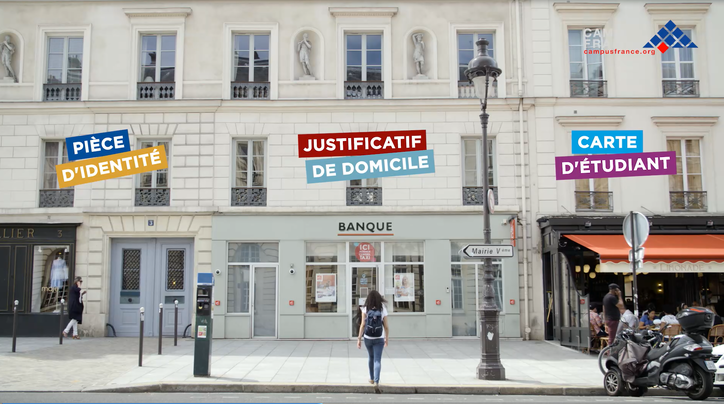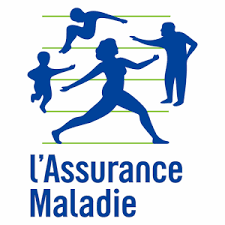As soon as you arrive, make sure to complete the following 6 important steps. Make sure to take care of it immediately.
Pay your contribution to campus and student life
This is the first step to complete, before any other. It is mandatory to register in your higher education institution. You can even complete this step before coming to France.
The contribution to campus and student life costs 105 euros per year. You can pay it online at cvec.etudiant.gouv.fr. You can also pay in cash.
Our tip: make sure to keep the proof generated after your payment. You will have to provide it during your registration in your institution.
The contribution to campus and student life is paid to the CROUS to facilitate the reception of students and their social, health, cultural and sports follow-up. It also finances prevention activities in relation with health.
All students registered in an initial training in a French higher education institution, whether public or private, must pay this contribution, to the exception of students:
Holders of a scholarship on social criteria managed by the CROUS or holders of a scholarship from a regionHolders of a French government scholarshipWith the status of refugee or subsidiary protectionRegistered as asylum seeker and entitled to stay on the French territory.
For all other cases, even students exempt of payment of the Contribution to Campus and Student Life (CVEC) must login to the website cvec.etudiant.gouv.fr to validate their exemption and receive a certification allowing them to register to their higher education institution.
For more information, check out our article about the 10 things you need to know about the CVEC

© Drobot Dean – stock.adobe.com
Good to know: students registered in a BTS course are not subject to the CVEC, because they are registered in a secondary school and not a higher education institution.They don’t need to login to the website cvec.etudiant.gouv.fr; no certification will be asked of them.
Registration in your higher education institution
Go to the international relations department of your host institute. While there, get the information you will need to the study in France. Then go to the enrolment department to finalise your enrolment, pay your tuition fees and pick up your student card.
Open a dedicated bank account
It can be very handy to open a bank account in France, in particular for paying bills (electricity, telephone, rent) and subscriptions (transportation, Internet). You will also be able to cash any wages you receive and it’s easier to be reimbursed for healthcare expenses. A French payment card also lets you pay for most things so you don’t have to carry large amounts of cash with you.
Owning a French bank account is a right recognised by French authorities. A foreign student can open a bank account in any bank in France. The different banks have branches in most cities; just open the door and make an appointment with a counsellor.
Compare what the different banks offer. The costs of the bank card, international transfers and cash withdrawals abroad may vary noticeably from one bank to another.
Three documents are needed to open a bank account: identification, proof of residence and an attestation of enrolment or a student card. If you still don’t have any accommodation, you may be able to use the address of the service of international relations of your institution.
After you open a bank account, you will have the right to a bank card and a cheque book. With your Relevé d’Identité Bancaire (RIB – bank account information slip), you will be able to easily make the different monthly payments you have.
If you face difficulties to open an account, a process called “droit au compte” (right to account) can help you: the Banque de France will appoint a bank and force it to open an account for you. Details of this process, documents to provide and associations offering help are available on the Banque de France website.

Validate your residence permit
If you came to France with a long stay visa used as residence permit (VLS-TS in French), you must validate your visa as soon as you arrive in France. The process is entirely digital: you can do everything remotely, at home, on your computer. You must validate your visa within 3 months of arriving in France at the very latest.
Please visit: https://administration-etrangers-en-france.interieur.gouv.fr
What do you need to validate your VLS-TS visa?
You will need:
a valid email address,information on your visa,your date of arrival in France,your home address in France,a bank card to pay online the fee for issuing the residence permit.What if you do not have a bank card?
Don’t worry! You can buy an electronic stamp (timbre électronique) at a kiosk, at a dedicated terminal, and pay in cash.
To find out more, visit our page How to validate your VLS-TS visa upon your arrival in France?
Register to health care
If you have a European Health Insurance Card (EHIC), you don’t need to register to the French social security. You can use your card and receive care in France. This card is issued in your country.
Students included are those with the nationality of a country of the European Union, Iceland, Lichtenstein, Norway or Switzerland.
Non-European students arriving in France
You must register to the French general social security system. Registration is done online by logging in to the website of the health insurance dedicated to foreign students.
Please visit: https://etudiant-etranger.ameli.fr/#/.
Registration is free. You must complete your registration immediately after the registration to your institution and after the validation of your visa.
This is a mandatory step. You will be issued a “carte vitale” (social security card) to benefit from reimbursments. You can also subscribe to a healthcare mutual for a better reimbursement of your medical expense.

Our tip: Check out our article about health, healthcare and healthcare mutuals for additional details about this process.
